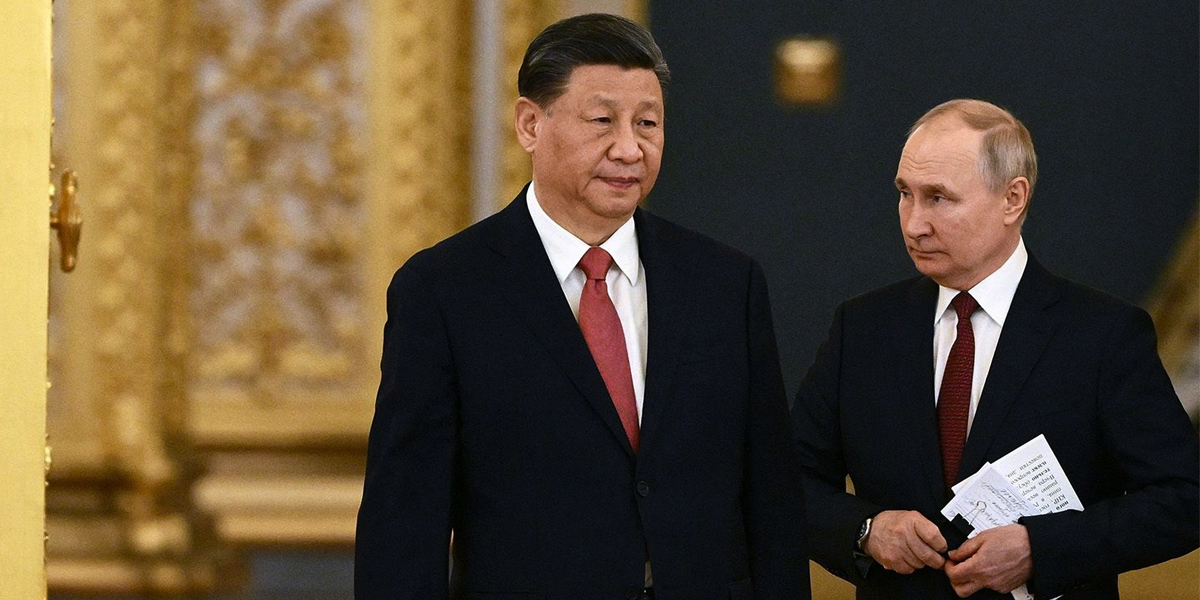On March 20, 2023, President Xi Jinping visited Moscow on a three-day trip and, upon invitation, met with Russian President Vladimir Putin at the Kremlin. The two leaders had a lengthy conversation on strengthening diplomatic, defense, and trade ties and issues of mutual interest.
Russia-Ukraine Conflict
It was the first visit to Russia by Xi since the Russia-Ukraine War last year. During the first half of the meeting, the Ukraine war was touched upon and remained a central discussion point.
“In the last few years, China has made a colossal leap forward,” Putin told Xi, on Monday afternoon. “In the whole world, this evokes interest, and unfortunately even envy.”
Xi, who called Putin his “dear friend,” praised his Russian counterpart, saying the country’s development had “significantly improved.”
Putin further reassured Xi that he is “always open to the negotiation process,” although he has repeatedly refused to engage with Kyiv regarding a withdrawal from Ukrainian land.
Ukraine, on the other hand, has tried to remain optimistic about China playing a neutral role. Ukrainian Foreign Ministry spokesman Oleg Nikolenko stated, “We expect Beijing to use its influence on Moscow to make it put an end to the aggressive war against Ukraine.”
Russia-China Joint Statement on Deepening their Strategic Partnership and agreement on Economic Cooperation
Both leaders signed an agreement bringing their ties to a “new era” of cooperation. Xi stated that China and Russia should work more closely to push forward greater political cooperation.
In turn, Putin said “all agreements have been reached” and that economic cooperation between Moscow and Beijing was a “priority” for Russia.
- Russian energy
China has emerged as a major buyer of discounted Russian oil and gas as Western buyers have banned energy imports. Russia was China’s top oil supplier in January and February at 1.94 million barrels per day, up from 1.57 million in 2022, according to Chinese customs data. Russia’s crude oil exports to China are also up, growing 8% in 2022 to 1.72 million barrels per day.
China’s imports of Russian pipeline gas and liquefied natural gas last year jumped 2.6 times and 2.4 times, respectively, to $3.98bn and $6.75bn. Meanwhile, China’s imports of Russian coal surged 20% to 68.06 million tonnes.
- Imports of Chinese goods
Russia has also been ramping up imports of Chinese goods, including machinery, electronics, metals, vehicles, ships and aircraft. China’s exports to Russia hit $76.12bn in 2022, up from $67.57bn the previous year, according to Chinese customs data.
- Work within multilateral frameworks/ people-to-people exchanges
Both nations have committed to working within the Shanghai Cooperation Organization, BRICS, and G20, to advance the post-COVID economic recovery and improve global governance and international development. Also, they agreed to do more to promote communication between sister provinces/states and to ease travel between the two nations.
While the Russian side welcomes China’s willingness to play a positive role in resolving the Ukraine crisis, there seems to be growing skepticism by the West on whether China is playing a peacemaking role and being impartial. Regarding the Ukraine conflict, US diplomat Anthony Blinken stated that the visit showed China’s intent to provide “diplomatic cover “for alleged Russian atrocities in Ukraine. However, China has continuously denied Washington’s allegations of only forming a military alliance with Russia.
Furthermore, right when the talks between the two ended on Tuesday, the International Monetary Fund (IMF) announced a preliminary agreement with Kyiv on a four-year loan package of about $15.6 billion to the conflict-ridden country.
Regardless of the growing tensions and shift between geo political alliances, Xi and Putin stand their ground to work as close as possible for economic cooperation and described their countries’ relations as the best they have ever been.
Under arrangement between Matrix and CRSS.
 Zehra Zaidi
Zehra Zaidi

